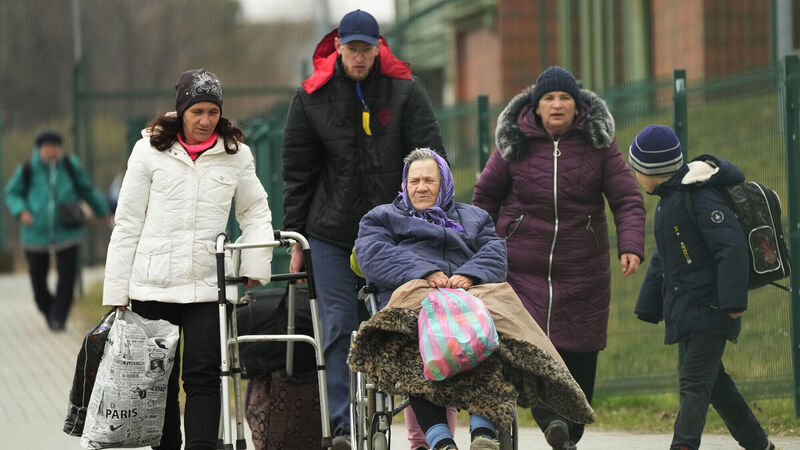5,000 additional beds needed for Ukrainian refugees before Easter, Cabinet warned

Refugees walk after fleeing the war from neighbouring Ukraine at the border crossing in Medyka, southeastern Poland, Saturday, April 2, 2022. Picture: AP Photo/Sergei Grits
Ireland will need an additional 5,000 beds to cope with the number of Ukrainian refugees coming here before Easter.
Cabinet was given the stark warning on Tuesday, though sources have said that exact numbers are hard to ascertain because of daily fluctuations in arrivals.













